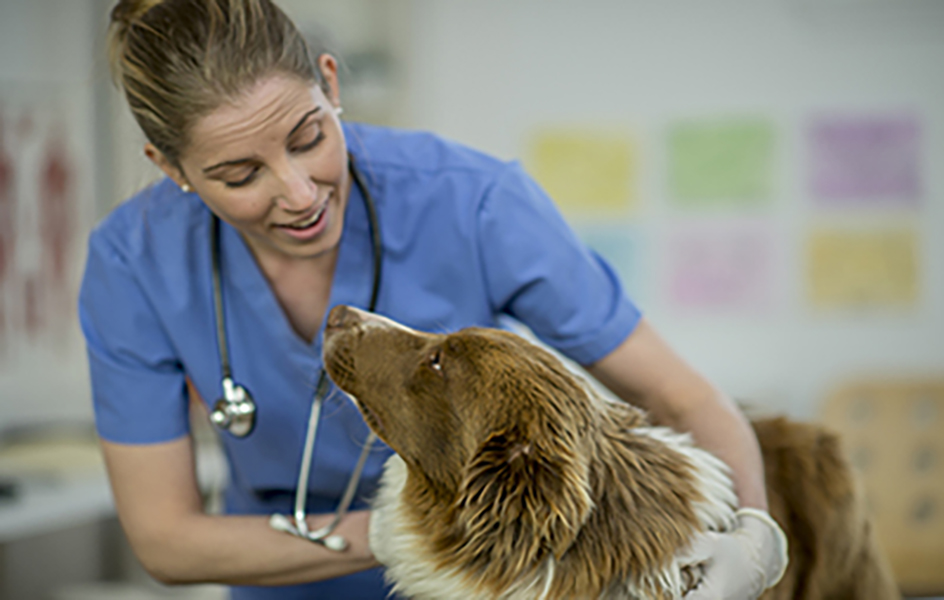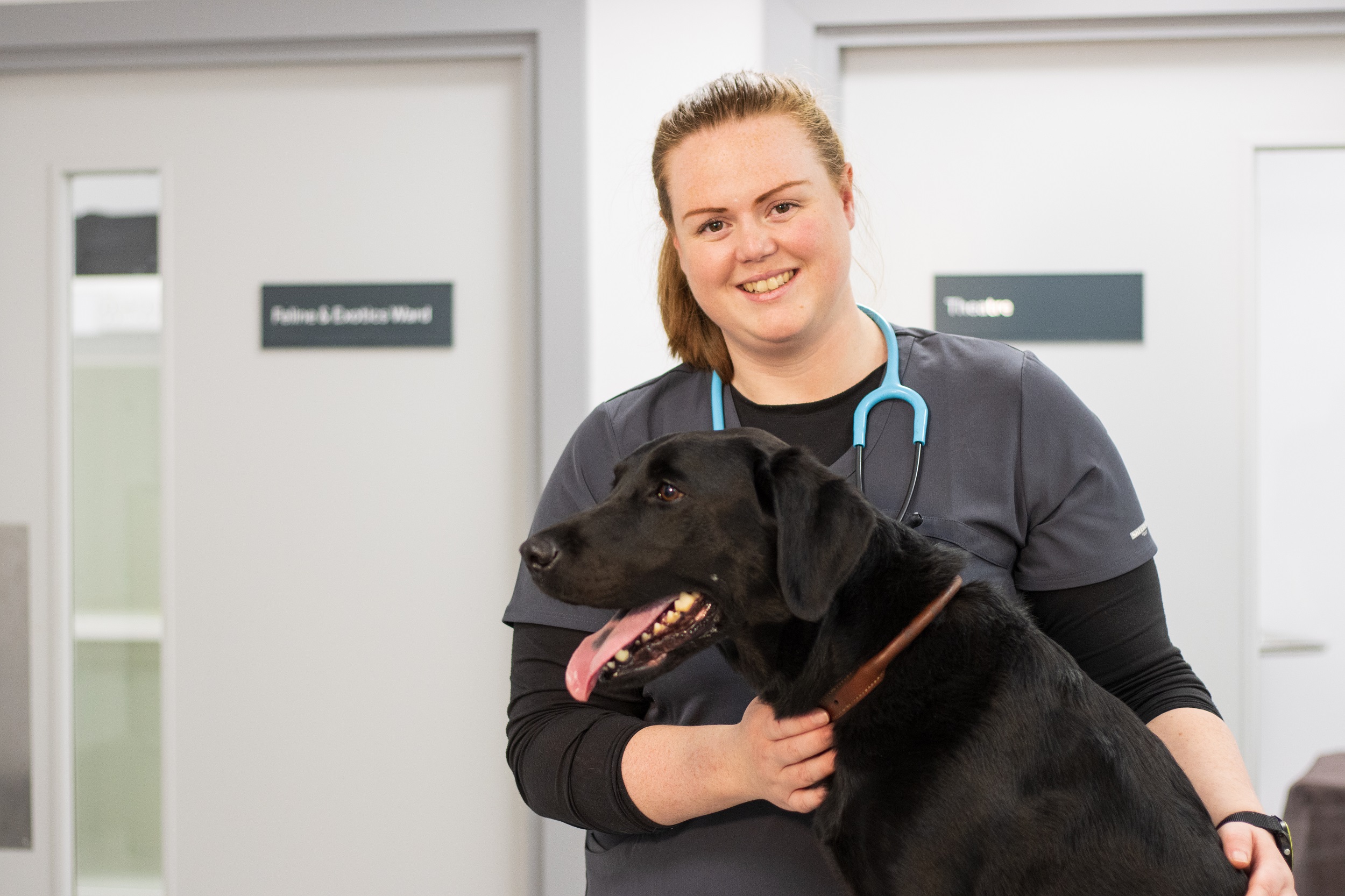University of Bristol and CVS Group collaborate to assess the environmental risk from ectoparasite treatments

CVS is funding a critical study at the University of Bristol to assess the environmental risk from ectoparasite treatments in companion animals.
Within the veterinary profession, concern has been expressed over potential contribution to environmental contamination from products used in companion animal treatment for ectoparasites, such as fleas and ticks. In recent years, there has been a widely documented fall in the abundance of many terrestrial invertebrate populations[1]. While this decline has been mostly linked to agricultural chemicals, there is a concern that companion animal ectoparasiticides could also be a contributing factor, with a recent study[2] confirming the presence of common compounds used in flea-treatment[3] in UK waterways. However, the association with companion animal ectoparasiticides is currently poorly understood, with a significant knowledge gap and little robust research available to assess the true importance and environmental consequences.
The funded project ‘Assessing the Environmental Risk from Ectoparasite Treatments in Companion Animals’ will be conducted via a PhD studentship at the University of Bristol as part of the CVS Clinical Research Awards. The project starts in January 2023 and will run for three-years as a full time PhD. CVS is providing £95,000 to fund the research.
This study intends to address the many important, but yet unanswered, questions surrounding the wider impacts of ectoparasiticide use in companion animals. It will include a large longitudinal ‘citizen science’ study with pet owners to develop a greater understanding of owner use and attitudes towards ectoparasiticides. It will also include laboratory assessments of ectoparasiticide residues collected from companion animals to provide much needed evidence-based information on the potential environmental impact of the treatments when applied to companion animals.
It is hoped the study will help the wider veterinary profession develop the most appropriate approaches to prescribing and use of ectoparasiticides in the future, and inform educational strategies to support owners with ‘responsible use’. The study is also set to benefit companion animals, as the research will inform strategies to ensure the most appropriate control of parasitic burden to pets.
The study is being led by Professor Richard Wall, Professor of Zoology, at the University of Bristol who is a veterinary entomologist with extensive research experience with a wide range of ectoparasites and the environmental impacts of veterinary anti-parasitic treatments. It is also being overseen by Dr Emily Bell, Senior Lecturer at University of Bristol in collaboration with colleagues at CVS; Dr Imogen Schofield, Veterinary Statistician and Epidemiologist, and Lizzie McLennan-Green, Small Animal Veterinary Director.
Prof Richard Wall, at the University of Bristol, said:

“This is an issue of considerable concern where research is urgently needed so that risk-based assessments of the impact of, and requirements for ectoparasite treatment can be made. Whilst we can make some assumptions around the impact of routine ectoparasite treatment, this research is essential for us to truly understand this and to be able to balance the needs of veterinary patients with these wider impacts based on firm evidence.”

Paul Higgs, Chief Veterinary Officer at CVS, said:

“As part of an essential One Health approach to healthcare we can no longer consider veterinary treatment in isolation from human and environmental health. This project is critical to our understanding of the impact that treatment for ‘the individual’ can have on wider human, animal and environmental health.”

Lizzie McLennan-Green, Small Animal Veterinary Director at CVS, said:

“In considering our approach to preventative ectoparasiticide treatment, it became quickly apparent that the evidence base was largely absent. We are delighted to be collaborating with the University of Bristol on this much needed research project which will support our decision-making and that of the wider industry – helping us to balance animal, human and environmental health into the future.”

CVS Clinical Research Awards were launched in January 2022 and are an industry first; offering funding for research undertaken by its employees and research undertaken by universities. The awards support clinical veterinary research which has a direct clinical benefit to animals and which will impact upon veterinary practice. The Assessing the Environmental Risk from Ectoparasite Treatments in Companion Animals study is one of 16 projects CVS has funded since its awards were launched.
Find out more about the CVS Clinical Research Awards, and how to apply. Find out more about CVS’s sustainability strategy and ongoing One Health Workstreams.
CVS Group operates across small animal, farm animal, equine, laboratories and crematoria, with 473 veterinary practices and referral centres in the UK, the Republic of Ireland and the Netherlands. In the last five years the company has invested nearly £80 million in its sites, facilities and equipment, in addition to industry leading training and support, to give the best possible care to animals.
[1] Leather, S.R. (2018) “Ecological Armageddon” - more evidence for the drastic decline in insect numbers. Annals of Applied Biology, 172, 1-3. https://onlinelibrary.wiley.com/doi/10.1111/aab.12410
[2] Perkins, R., Whitehead, M., Civil, W. & Goulson, D., (2021) Potential role of veterinary flea products in widespread pesticide contamination of English rivers. Science of the Total Environment, 755, 143560. https://www.sciencedirect.com/science/article/abs/pii/S0048969720370911?via%3Dihub
